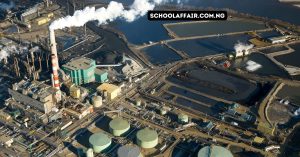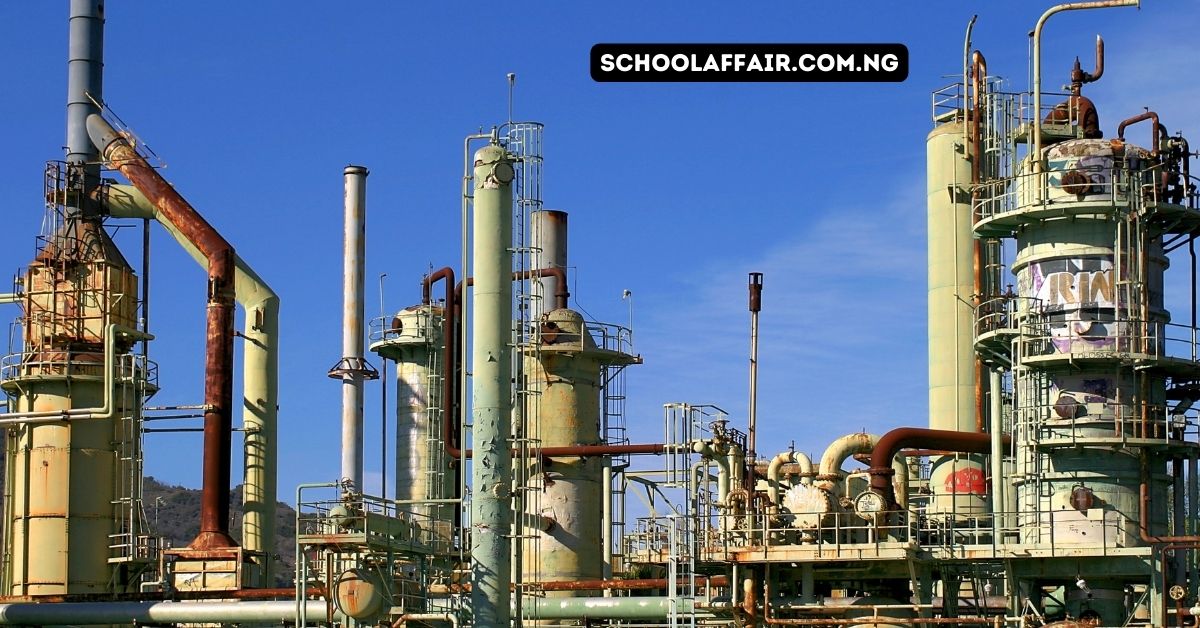Nigeria, a major oil-producing country, continues to grapple with the elusive dream of having functional refineries. In the latest chapter of this saga, false hope was raised with the announcement of the “mechanical completion” of repairs to the Port Harcourt Refinery in December 2023. This proclamation, however, proved premature and misleading, underscoring the chronic challenges faced by Nigeria’s oil refining sector.
The Current State of Refineries:
All four state-owned refineries in Nigeria, boasting a combined capacity of 445,000 barrels per day, have remained practically dormant for years. Despite repeated efforts and investments totaling billions of dollars, they have failed to reach full operational status. The consequences are far-reaching, as Nigeria is forced to import the majority of its fuel needs, draining foreign exchange reserves, leaving consumers vulnerable to global oil price fluctuations, and incurring substantial annual subsidies on petrol prices.
Root causes of refinery failures:
The reasons for the perpetual failure to fix Nigeria’s refineries are multifaceted. Poor management, corruption, sabotage, and a lack of political will for reform have contributed to this dire state of affairs. The refineries, historically viewed as cash cows for corrupt officials, have suffered from budget diversions, the retrenchment of skilled workers, and a policy environment riddled with instability and political interference.
Failed Rehabilitation Attempts:
Even recent efforts to rehabilitate the Port Harcourt refinery under the Buhari administration, with a $1.5 billion budget allocated in 2021, have fallen short of expectations. The “mechanical completion” announcement in 2023 was met with disappointment as critical work remains unfinished and the refinery units are still unable to process crude oil effectively. Experts argue that the recent announcement was a publicity stunt, casting doubt on the government’s commitment to transparency.
The Urgent Need for Reform:
Despite the disillusionment and skepticism surrounding the refineries’ future, there is a resounding call for sincere and transparent reform. Proper project oversight, accountability for funds, utilization of expertise, and strict timelines for progress are essential components. The government is urged to prioritize reforms in the oil sector, considering restructuring and possible privatization of the refineries.
Private Investment as a Lifeline:
One potential solution lies in allowing competent private investors to take over the refineries. This approach, coupled with strengthened regulatory oversight, could ensure efficiency, adherence to safety standards, and fair fuel prices. Breaking away from the cycle of failed governmental approaches, private investment could inject a much-needed lifeline into the refining sector.
Appeal for Transparency and Realism: In the face of ongoing challenges, there is a poignant appeal for more openness and transparency in communication. Nigerians, tired of false hope couched in semantic jargon, deserve a realistic assessment of the refineries’ status. This includes not only the Port Harcourt refinery but also the other three in Warri and Kaduna.

(FAQs) related to Nigeria’s refineries, their challenges, and the oil sector:
1. Why are Nigerian refineries not working?
Nigerian refineries are not working due to years of neglect, poor maintenance, corruption, and a lack of efficient management.
2. What is the current operational status of Nigerian refineries?
As of the last available information, none of the state-owned refineries in Nigeria were fully operational.
3. What led to the decision to shut down the refineries?
The decision to shut down the refineries was made to curb losses, as the cost of processing crude oil exceeded the value of the products produced.
4. How many private refineries are there in Nigeria?
As of my last knowledge update in January 2022, there were plans for several private refineries in Nigeria, but the operational status may vary.
5. Can you provide a list of private refineries in Nigeria?
Some private refineries include Dangote Refinery (under construction), Waltersmith Refining & Petrochemical Company, Azikel Refinery, OPAC Refinery, and Niger Delta Petroleum Resources Refinery.
6. When is the Port Harcourt refinery expected to resume full operations?
There have been announcements regarding the “mechanical completion” of repairs, but the refinery is still not operational. The timeline for full operations remains uncertain.
7. What challenges have hindered the rehabilitation of Nigerian refineries?
Challenges include poor management, corruption, sabotage, a lack of political will for reform, and a history of budget diversions and retrenchment of skilled workers.
8. How much has been invested in the rehabilitation of the Port Harcourt refinery?
The government approved $1.5 billion for the Port Harcourt refinery rehabilitation in 2021.
9. Is there hope for the revitalization of Nigeria’s refining capacity?
There is hope, as plans for rehabilitation and the construction of refineries are in place. However, skepticism remains due to past disappointments.
10. How many barrels per day can the Port Harcourt Refinery process at full capacity?
The Port Harcourt Refinery can process 60,000 barrels per day at full capacity.
11. What impact do non-functional refineries have on Nigeria’s economy?
The lack of domestic refining capacity forces Nigeria to import fuel, draining foreign exchange reserves and leaving consumers vulnerable to global oil price fluctuations.
12. What is the role of corruption in the failure of Nigerian refineries?
Corruption has led to budget diversions, the retrenchment of skilled workers, and an unstable policy environment, hindering the effective operation of refineries.
13. Are there any ongoing efforts to privatize Nigerian refineries?
There have been suggestions for restructuring and privatization of the refineries to involve competent private investors.
14. Which companies built the refineries in Nigeria?
The refineries in Nigeria were built by various companies, including Shell-BP Petroleum Development Company and Chiyoda Engineering & Construction Co. Ltd. of Japan.
15. How many refineries does Nigeria have in total?
Nigeria has four state-owned refineries: the Port Harcourt Refinery Complex, the Warri Refinery, and the Kaduna Refinery.
16. What are the economic and social costs of Nigeria’s dependency on fuel imports?
Dependency on fuel imports leads to economic strain, vulnerability to global oil price fluctuations, and substantial annual subsidies on petrol prices.
17. What steps can be taken to revitalize Nigeria’s refining sector?
Steps include proper project oversight, accountability for funds, utilization of expertise, strict timelines for progress, and potential restructuring and privatization.
18. Is there optimism for the future of Nigeria’s refining sector?
While challenges persist, there is optimism that sincere reforms, transparency, and decisive actions can lead to a revitalized refining sector in Nigeria.
Conclusion:
Quick action must be taken, as Nigeria is on the verge of experiencing yet another setback in its search for operating refineries. Ignoring the ongoing economic and social implications of relying solely on gasoline imports is not an option. To eventually put an end to the decades-long wait for operational refineries, the government must make difficult decisions, place a high value on openness, and implement extensive reforms. Nigerians must not accept anything less than a viable and lucrative energy future because they deserve it.
